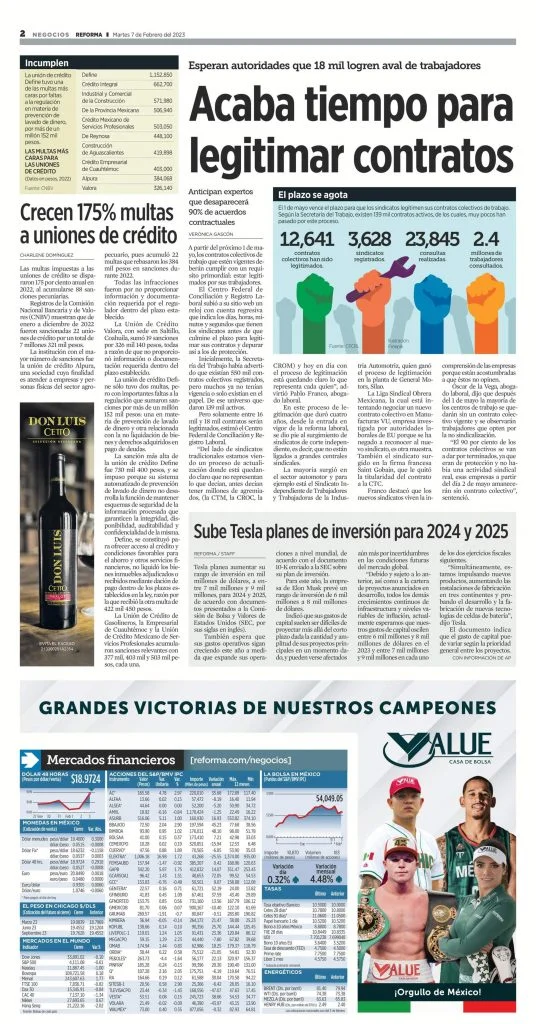Once the deadline for the legitimation of collective bargaining agreements is reached on May 1, there will be a rearrangement within the union world and the survivors will have to prove that they truly represent the workers.
One of the main changes will be the weeding out of the so-called protection agreements, which simulated an active union life, while the workers had no idea that they belonged to a union.
Initially, the Department of Labor had 550 thousand registered collective bargaining agreements, but many of them were no longer valid or only existed on paper and, thus, only 139,000 active ones remained.
But those that will be legitimized are only 13 percent, that is, between 16 thousand and 18 thousand agreements, in the estimation of the Federal Center for Labor Conciliation and Registration.
“It is clear that they did not represent what they claimed; previously, millions of members were reported, (CTM [Confederation of Mexican Workers], CROC [Revolutionary Confederation of Workers and Peasants], CROM [Regional Confederation of Mexican Workers]) and the legitimation process shows us that these unions abandoned their historical role and devoted themselves to signing protection agreements”, Pablo Franco, a labor lawyer, warned.
During the course of this legitimation process, which lasted four years, from the entry into force of the labor reform, the rise of unions of an independent nature, that is, unions that have no connection with the large union centrals, was given rise to.
Most of them arose in the automotive industry and as an example we have the Independent Union of Automotive Industry Workers, which won the legitimation process at the General Motors Plant, Silao.
The Mexican Workers Union League, which is seeking to negotiate a new collective bargaining agreement at Manufacturas VU, a company under investigation by the United States labor authorities because it has refused to acknowledge the new union is another example. Also, the union that arose at the French Firm Saint Gobain, which took the right to handle the collective bargaining agreement from the CTC [Confederation of Workers and Peasants].
Franco pointed out that the new unions suffer incomprehension by the companies because the latter are not used to the former expressing their opinions.
Óscar de la Vega, labor lawyer, said that after May1, the majority of work centers will no longer have a valid collective bargaining agreement and there will be cases of workers that opt for non-unionization.
“90 percent of collective bargaining agreements will be terminated, because they were protection agreements and there was no actual union activity; those companies will awaken without a collective bargaining agreement as of May 2”, he predicted.




